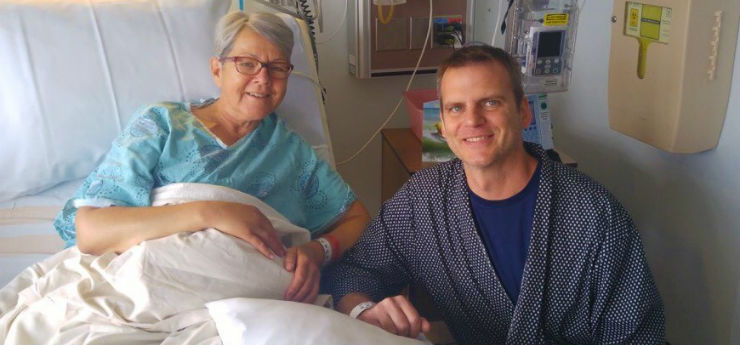
Danny Sutton-Long (right), a nurse in the Intensive Care Unit at The Ottawa Hospital, donated a kidney to friend and fellow nurse Betty Organ, who is ‘Aunt Betty’ to his two daughters: Holly, 14, and Eve, 10. “Eve said to me, ‘We’re related now because you have Dad’s kidney’,” said Betty.
Think about it: how would you go about asking family, friends or acquaintances to donate a kidney? It’s an enormous request, and it’s not always easy.
“I thought about it a lot – how I would approach somebody. You have a lot of time to think about it while on dialysis,” said Betty Organ, a cardiac care nurse, now retired from the University of Ottawa Heart Institute, who received a kidney from a friend and coworker in June 2017. (Yes, that’s her real name, and yes, she’s heard all the jokes!)
Kidney transplants improve the long-term survival of patients with kidney disease compared with dialysis. Research has shown that kidney transplants from living donors generally work better and last longer than deceased-donor transplants. And the average wait time in Ottawa for a deceased-donor kidney is three to five years.
“Patients like Betty would prefer to have a planned living-donor transplant, but many are unsure how to get started,” said Diane Dumont, Kidney Transplant Coordinator at The Ottawa Hospital. “The key is education about their options and encouraging them to get the word out about their need for a donor. If people don’t know they need a kidney, how can they help?”
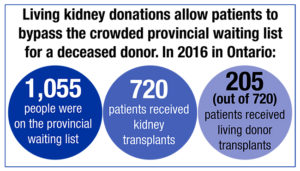
Still, many patients report feeling ‘the 3 Cs’ when it comes to talking about living kidney donation: conflict, concern and confusion, said Nurse Jessica McDougall, project lead for the Access to Kidney Transplantation and Living Kidney Donation project. “They have many questions: Will the conversation be uncomfortable? Will people feel pressured? How will I react if they say ‘no’?”
Among the program’s many goals is supporting patients with various strategies and tools so they feel confident talking about their need for a kidney donor. Some people have a tough time talking one-on-one with loved ones, but there are other ways:
- Discuss it at a family gathering.
- Send a group email.
- Choose an advocate to help spread the word.
- Have a practice conversation first, to boost your confidence and readiness to tell your story.
Studies show that patient conversations with their loved ones go much better than predicted, explained Jessica. Often, the reluctance patients feel to approach loved ones is matched by their loved ones’ equally strong desire to help.
Betty, an outgoing person with a lively sense of humour, did not approach people one-on-one, but rather spread the word by talking with groups of people, encouraging them to contact the Living Kidney Donor Program directly if they wanted to donate. (The donor and the recipient have separate teams to support them.)
“Given my personality, it wasn’t hard to speak to people, but I can see where it might be for others,” she said. “I was really lucky. I didn’t have to beg anybody to donate. They came forward.”
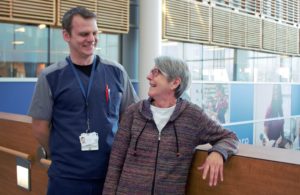
Danny and Ged Sutton-Long, both nurses at The Ottawa Hospital and longtime friends of Betty’s, immediately wanted to donate, and entered the rigorous screening process. Betty’s family members were ruled out, then Ged was ruled out, and finally Danny became the donor.
“We wanted the old Betty back,” he said. She had been in good health before an illness damaged her kidneys, but Betty had become so deconditioned that she could barely walk. She didn’t do well on hemodialysis. “Now, we can see Betty getting back to how she was. It’s wonderful to see.”
Both Betty and Danny praised the program and the support they received.
“The donor team makes it as easy on you as possible and they follow you, for the rest of life if you want,” said Danny. “They do make a lot of promises and they keep them.”
Betty, who has become an advocate for organ donation, is grateful not just to Danny, but to everyone who responded to her call.
“I didn’t realize I had so many genuine good friends. I never take them for granted now.”
| Think before using social media to ask for a donor | |||
|---|---|---|---|
| Talk to the transplant team before using social media to help find a living kidney donor. The team will discuss the risks and benefits. For example, accepting a kidney from someone you don’t know is risky because you don’t know their motives. Donors must come forward freely of their own accord. It is illegal to offer money or services in exchange for organ donation in Canada. This law exists to ensure patients and donors are not put into vulnerable situations. |
For more information, and a guide on how to find a kidney donor, please call the Living Kidney Donor program at 613-738-8400 ext. 82778.
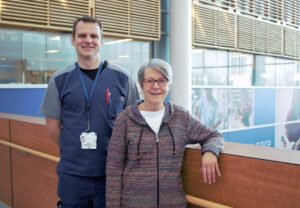

Support patient care and research at
The Ottawa Hospital
You might also like…
Angèle crushes triathlons and myths about living kidney donors
There’s no shortage of myths about living kidney donation. You may have heard that donors should no longer participate in sports or try to get pregnant. Well, meet Angèle. She’s a triathlete, a mother and a living kidney donor who gave her father a new life 13 years ago.
Becoming a living kidney donor has never been easier: Trina and Antonio’s story
Kidney donors like Trina usually face many months of tests, but a new program at The Ottawa Hospital allowed her to complete nearly all of them in just one day. Trina shares her experience as a living donor and how this new program made it easier to give her brother the gift of life.
Organ donation: Your questions answered
Have you ever wondered how to become an organ donor? Or how to have that conversation with your family or friends? We spoke with experts from The Ottawa Hospital and Trillium Gift of Life Network (TGLN) about the most common organ donation questions they receive. Here are their answers.
Living organ donors honoured in ceremony
The Ottawa Hospital and the Trillium Gift of Life Network honoured 28 living organ donors at a ceremony on Oct. 30, 2018. Living donors and recipients shared their touching stories about how organ donation has changed their lives.
Thank you for the second chance: Honouring those who gave the gift of life
When Denise Schaerer feels a thumping in her chest, she doesn’t just feel her own heartbeat – she feels someone else’s as well. More than 300 patient family members gathered on April 25 at the General and Civic campuses to honour someone they loved, who had consented to organ donation.
Trillium Gift of Life Network honoured hospital with two organ donation awards
When Brenda Ringlet passed away suddenly in 2016, her family was in shock, but found great comfort in knowing she helped save many lives through organ donation. Trillium Gift of Life Network recognized The Ottawa Hospital with two awards for its efforts in ensuring that patient wishes are granted.


 To reset, hold the Ctrl key, then press 0.
To reset, hold the Ctrl key, then press 0.
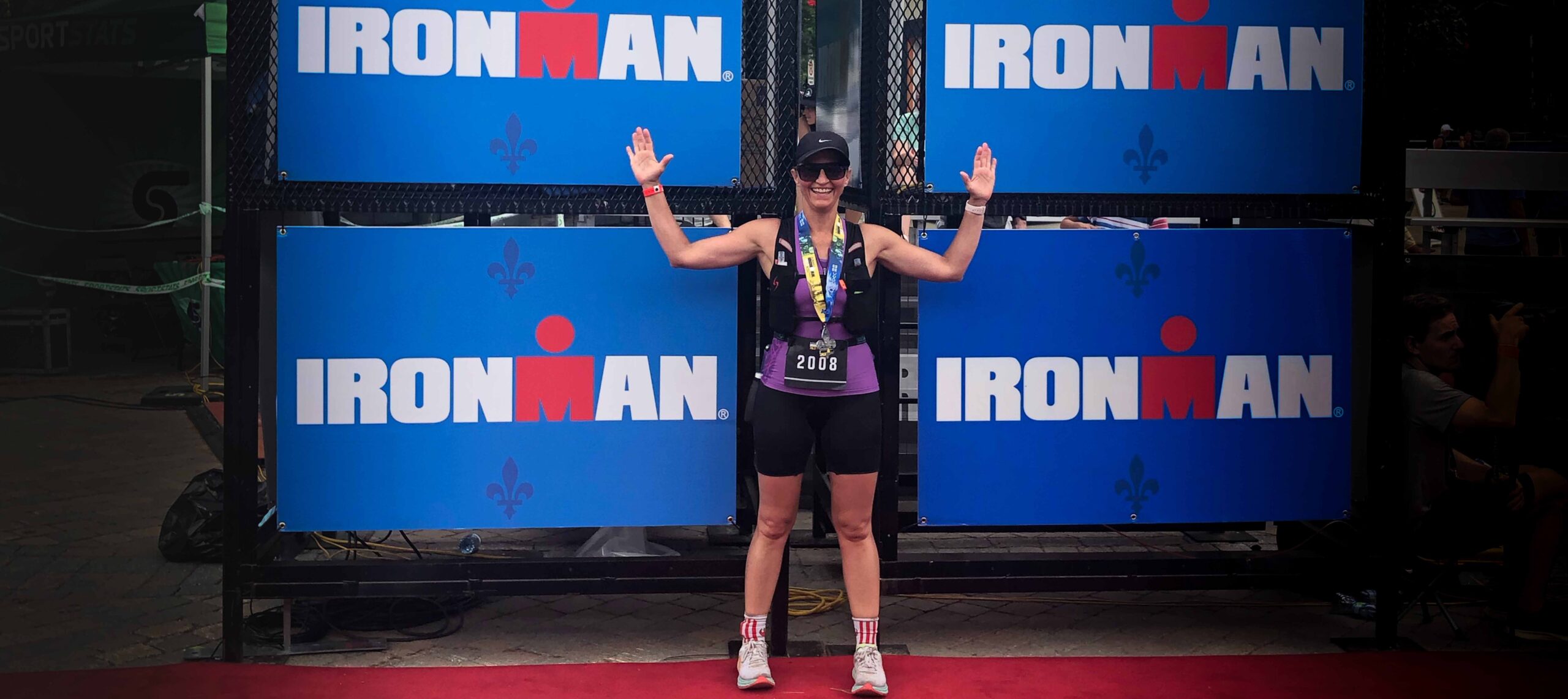
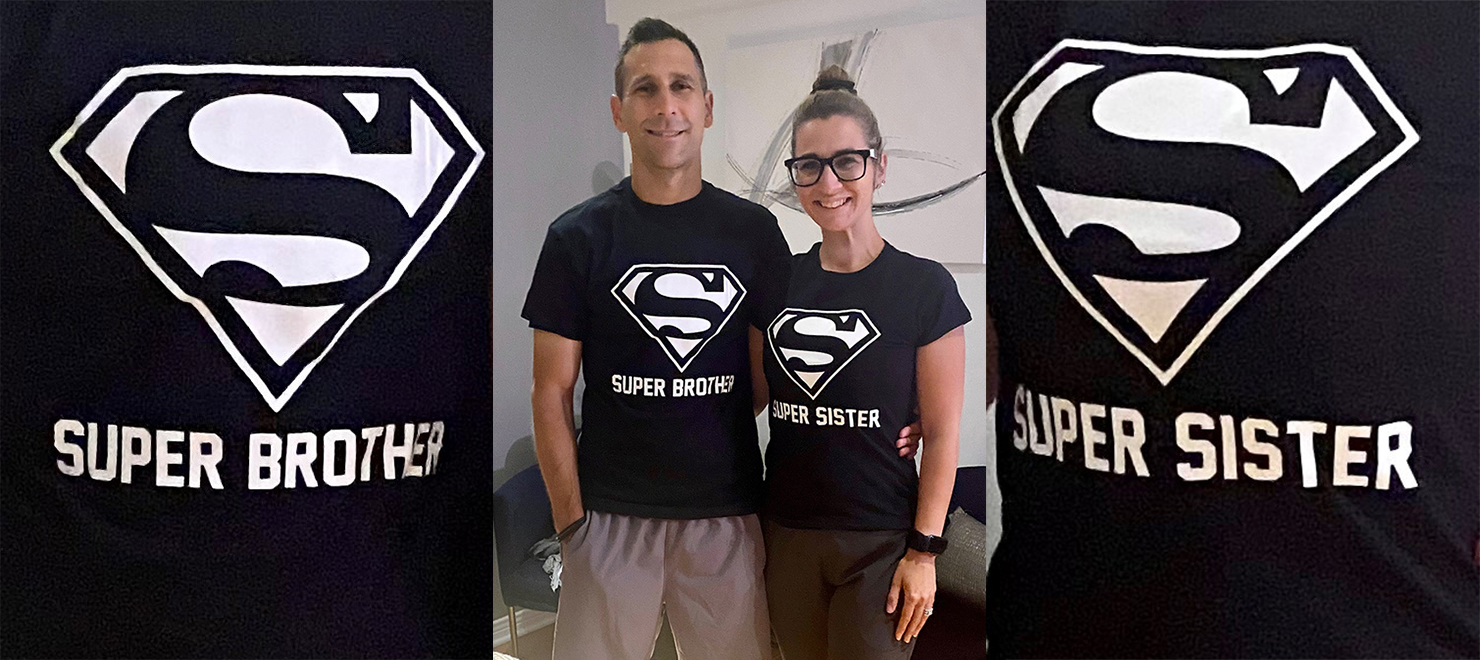
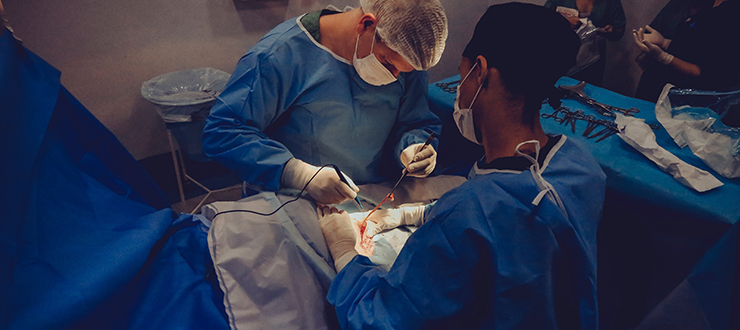
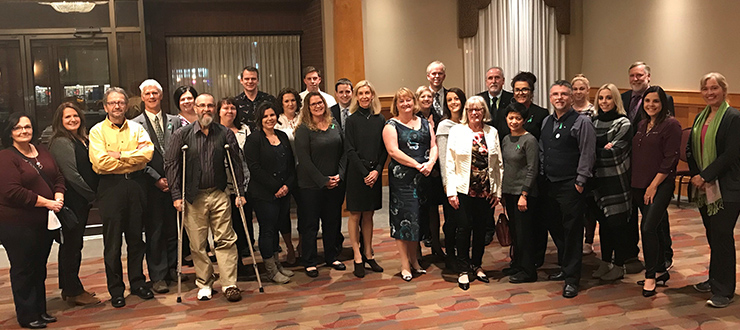
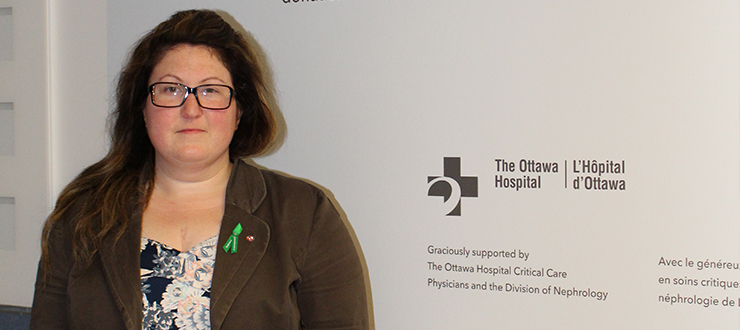
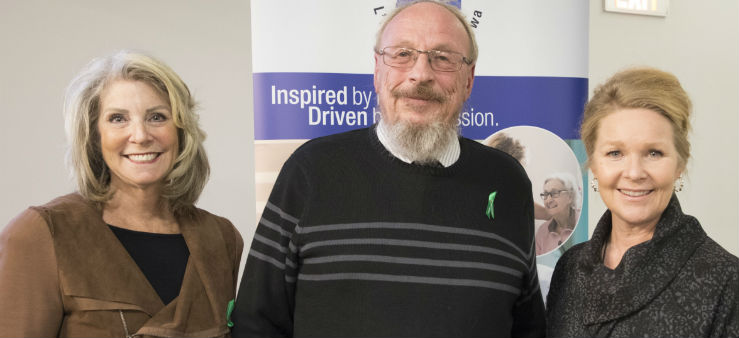
Comment on this post